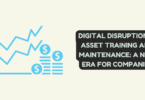
eCommerce
Are you planning on opening a new eCommerce store in 2023? It could be a very profitable move: there are currently around 263 million online shoppers in the US alone, with the majority of folk now opting to shop online rather than in physical stores.
While there are great rewards on offer for eCommerce entrepreneurs getting it right, there are also plenty of pitfalls to avoid, which could undermine your chance of turning a profit. Below you’ll find some of the most common mistakes that people make when opening a new eCommerce store – and, most importantly, how to avoid them.
Not Opting for a Niche Market
Not choosing a niche market is one of the biggest mistakes that people make when opening a new eCommerce store. Without a specialization, there’s a high risk your store won’t be able to stand out from the crowd – plus, there will be limited opportunity to deploy the sort of precision-targeted marketing that works so powerfully to drive sales.
Thoroughly research a few possible niches; these could be areas in which you have an interest or knowledge or that you’ve noticed aren’t well-represented right now. Or perhaps you have an idea regarding a possible sub-niche within an existing niche. As part of this process, pay special attention to what the competition is doing and what seems to be working well (and not so well) for these enterprises. Be sure that there’s sufficient demand for the product you’re considering selling.
Take the time to thoroughly profile your target audience: include things like age, demographic, lifestyle, and relevant price points. After all, the better you understand your market, the better you’ll be able to sell to it.
Not Choosing the Best Hosting Platform
Getting the best hosting platform for your store’s unique needs is vital and could make more of a difference than you think. As well as page load times, the platform you opt for will determine things like infrastructure scalability, efficiency, and how quickly you can get support if something goes wrong. It’s an absolutely vital behind-the-scenes component of your enterprise.
Taking some time to check out all the options is vital. If you want a hosting platform that offers fast incremental back-ups and restores (just in case the worst happens), guaranteed stability, and the option of a fully managed service for ease of management of your enterprise IT stack, read more on Host 1 Plus here, which could be perfect for your eCommerce store’s hosting needs.
Not Thoroughly Testing All the Components of Your Store
Getting an eCommerce store up and running is exciting, and it’s understandable to want to hit that ‘go live’ button as soon as possible to see the orders start piling in. Just hold on for a second, though. The testing stage of the set-up may seem like a bore, but it’s vital and can save you a huge amount of time and stress later down the line. Plus, it’s not a great look if your first virtual customers through the door experience a glitch with checkout meaning their orders can’t be processed.
As well as testing every element of the site to ensure it functions correctly, place several test orders, and go through the buying process entirely. You’re looking to make sure both the online ordering system and fulfillment steps go off without a hitch. Think through as many different order scenarios as possible: for example, how does it work if your customer requires a partial refund? What sort of notifications does your customer receive as their order progresses through the stages of fulfillment? Test the entire ordering process using a variety of devices and browsers.
Not Thinking About Customer Service
As a virtual business, you may not have given too much thought to customer service provision – but this is a huge mistake. With so much competition out there, poor or middling levels of customer service can be a huge factor in whether or not your business gets sales and earns a loyal customer base.
Consider how you’ll provide first-rate customer service as part of the set-up process. Think about the ways in which customers and potential customers can contact you and how you can guarantee a quick, efficient response every time. Be aware that customers are likely to want to get in touch at all parts of the buying process, not simply after checkout, so you can figure out ways to positively manage this demand.
Not Remaining Dynamic
Finally, remember that your eCommerce store is a living, dynamic enterprise – once it’s up and running, it still needs plenty of care and attention to thrive. To this end, create an ongoing plan regarding how you’ll run your store as part of the set-up process. Consider how you’ll effectively reevaluate things like your product lines and prices to keep up with the competition and remain relevant to your target market.
Regular marketing and promotions are great ways to keep the buzz going – email newsletters and competitions are also effective means to stay connected to your customer base and keep visitors returning to your virtual store.






